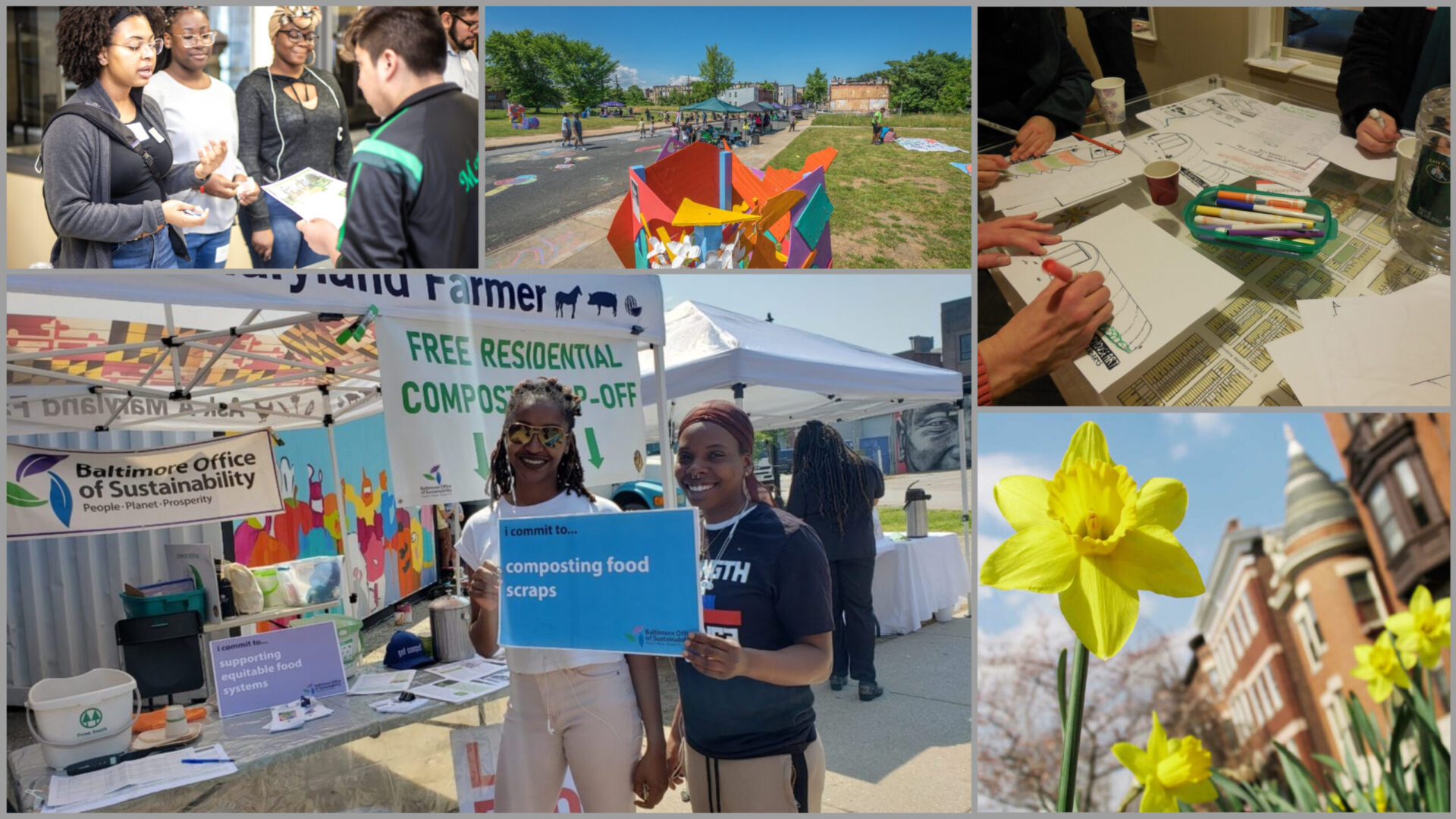On Wednesday, January 6, 2021, Mayor Brandon M. Scott signed an Executive Order postponing implementation of Ordinance 20-337: Comprehensive Bag Reduction in response to the continuous impact of COVID-19 on residents and businesses, effective immediately.
The Comprehensive Bag Reduction ordinance, commonly known as Baltimore’s plastic bag ban, was originally slated for implementation on January 13, 2021. The new effective date is October 1, 2021.
Effective October 1, 2021, the Comprehensive Bag Reduction Act (Baltimore City Code Article 28 § 32-1, Article 7 §62-1) bans single-use plastic check out bags at the point of sale, pickup, or delivery. Baltimore businesses must charge a minimum of $0.05 for each alternative bag distributed at check out, of which $0.01 must be remitted to the city.
Retailers must register for a Tax ID and pay the $0.01 surcharge electronically. The portal for Tax ID registration and payment is available here.
Bag Reduction Act Overview:
To Whom Does This Apply?
- supermarkets;
- convenience stores;
- corner stores;
- restaurants;
- shops;
- gas stations; or
- other sales outlets.
Which types of bags are banned?
Any plastic bag under 4 mils thick given/received at the point of purchase.
What type of bags are allowed?
Paper bags, compostable bags, and plastic bags that are 4 mils or thicker. Compostable bags are ones that: (i) meet the ASTM D6400 standard specification by a recognized verification entity; and (ii) are capable of undergoing biological decomposition. These allowable bags will come with a fee of at least $0.05 to the consumer.
Are there exceptions?
As per page 4 of the legislation, the ban “does not apply to a plastic checkout bag solely used to contain:
- fresh fish and fresh fish products;
- fresh meat and fresh meat products;
- fresh poultry and fresh poultry products
- otherwise unpackaged fruits, nuts, or vegetables;
- otherwise unpackaged confectionery;
- otherwise unpackaged fresh cheese;
- otherwise unpackaged baked goods;
- ice;
- foods and goods obtained at a farmers’ market;
- prescription drugs obtained from a pharmacy;
- newspapers; or
- dry-cleaned goods.”
Does this mean grocers and retailers can’t supply any bags to customers?
Any single use alternative bags, including paper bags, will come with a fee of at least $0.05 to the consumer.
Are there exemptions for FSP, WIC, or SNAP users?
Users of FSP, WIC, or SNAP will not be exempt from the ban OR the $0.05 surcharge for alternative bags. Since only certain products are allowed on voucher or electronic benefits transfer purchases, separating items becomes difficult.
What is the City doing to help reduce the impact of the fee on residents?
To help residents avoid paying the $0.05 surcharge, the City will be distributing a limited number of free reusable bags to residents with accessibility challenges.
What is required of business owners and retailers?
The Act requires that businesses collect a surcharge of at least $0.05 for alternative bags provided to customers (such as paper or compostable bags). Of the amount collected, $0.01 is to be paid to the City of Baltimore. Businesses may keep the remaining amount.
Collection of the bag surcharge will start on October 1, 2021. The first monthly payment will be due to the City on or before November 25, 2021, covering the period between October 1 to October 31, 2021.
Retailers must register for a Tax ID and pay the $0.01 surcharge electronically. The portal for Tax ID registration and payment is available here.
What happens if retailers do not comply?
The Act authorizes certain exemptions and imposes certain civil and criminal penalties. Fines start at $250, then $500 and $1000 for repeat offenders.
Can plastic bags be recycled?
They can, but only 8% are recycled – 92% are landfilled, incinerated, or littered. Plastic products break down over hundreds of years into microplastic particles that persist and accumulate in the environment. Plastic bags are not accepted in curbside recycling because they jam machinery and can cause costly damage.
Why does this matter?
Plastic bags are a large portion of plastic pollution that ends up in our trees, streets, parks, drains, harbor, waterways, and oceans. Banning the use and spread of plastic bags will decrease litter, prevent storm drain blockages and reduce our city’s carbon footprint to combat climate change. Fewer plastic bags in circulation is an important step towards a cleaner and greener Baltimore. In the U.S. we throw away enough plastic to fill a football stadium 1.5 times every day on average and that amount is increasing.
Eight U.S. states and hundreds of municipalities like Baltimore have chosen to ban single-use plastic bags because they are an enormous part of our pollution problem, both at home and world-wide. Did you know that:
- Plastic bags are only used for an average of 12 minutes each, but can take up to 500 years to degrade
- The three trash interceptors in the Baltimore harbor, aka the Mr. Trash Wheel family, have collected over 700,000 plastic bags
- Lightweight plastic bags are the type of debris most likely to be carried by the wind away from trashcans and landfills, ending up in trees, storm drains, streams, and eventually the ocean
- Plastic bags cannot be accepted in Baltimore City’s recycling system (or at most other recycling centers), and in fact can gum up sorting machines and cause them to break down
- Plastics are made from petroleum and are the fastest growing source of greenhouse gas emissions, which fuel climate change
- Plastic bags and other types of plastic pollution are clogging the ocean and killing marine wildlife, including the fish and other species we rely on to eat
Is there any concern using reusable bags during the COVID-19 pandemic?
Dr. Ben Locwin, an epidemiologist and consultant to the CDC says, “You really are almost at nil risk of getting a surface contact transmission of COVID-19.” Find answers to the top 7 FAQs regarding the safety of reusable products during COVID-19 here:
To learn more, watch Environment Maryland’s webinar on Plastic and the Pandemic.
For more information
Visit the Baltimore City Council www.baltimore.legistar.com to find the Baltimore City Comprehensive Bag Reduction Act, email sustainability@baltimorecity.gov.

